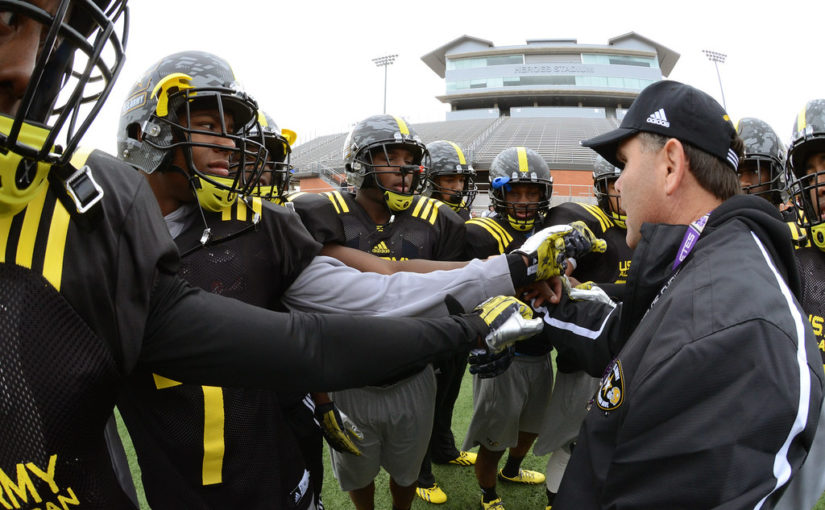Iron Sharpens Iron: Forged in the Crucible of Coaching
For the past 45 years, I’ve had the honor of being called “coach.” It represents more than a title or job description, it was a way of life that was rewarding in so many ways — and endearing on a daily basis.
The most influential people in my life were coaches, going back to my days as a sub-100 pound football player at St. Peter’s Elementary in Steubenville, Ohio. Even though they were all volunteer coaches, their love and passion for what they did was always on display. No, they were not necessarily the best strategists or ultra-technique savvy, but they put their best foot forward and coached us with enthusiasm and love.

Let’s look at just a couple of examples:
Developing a Culture
Before you attempt to develop a culture, it might be a good idea to define it. There are enough definitions out there, but the one that always hit me square in the jaw was simply this: “Culture is defined by the behavior of those within that culture.” And this holds true for every single person involved – from the top down. If the behavior is good — or, at least acceptable — a decent culture is probably evident. Flip that other way and, well, you can see that the culture will probably be flipped, as well. Make no mistake, this culture thing is a team effort…and it is a daily effort. Having a great culture is not a sometimes proposition… you don’t have a great culture “sometimes!” Sure, mistakes will be made, but knowing how — and having the willingness — to right the ship can mend any wound.
And when mistakes are made, your approach to correcting them is crucial.
Allow me to make a suggestion here: When an athlete makes a mistake and violates some aspect of your team culture, remember that the first words and last words in the conversation are the ones he/she will most likely remember the most.
Mine were as follows: I would start with, “I love you like a son, and that’s why we need to have this discussion. It would end with, “You’re better than that, and I know you’ll make a better decision the next time you’re faced with something like this.”
Here’s an important cue for developing the culture you seek:
Confronting and Demanding Excellence
Sounds a little over-the-top, I know…but in reality, it’s what your team wants. It’s not a negative – on the contrary, it’s very much a positive attribute that you need to push forward. Your players are not interested in mediocrity; the average is not what they signed up for, is it? Nor did you or your staff, for that matter. Now, there are right ways and wrong ways of approaching this axiom.
» ALSO SEE: Coaching Football During COVID-19
The goal is confidence building. And confidence will permeate each team member, and ultimately, the entire team, when it’s worked on methodically from the aspects of strength/conditioning, skill development, personal/mental health development, community service awareness and participation, film study, etc., and developing standards that everyone involved is expected to uphold.
A clarification on “standards.” They are not goals, per se, but rather tone setters for how the team conducts its daily business. Goals — regardless if they are short or long-term in nature — are somewhere down the road. They are very important to set, write down, and work towards, but they in the future. Standards on the other hand are right here, right now, in front of us every single day. And it’s really not a totally successful day unless we abide by them. Hard work, best efforts, mental and physical toughness, always learning something, treating others with respect at all times, being there for each other in times of need, etc., are all examples of standards, and there are so many more. Develop standards for your team. Better yet, work shoulder to shoulder with your team in developing those standards. They will tend to buy-in and take ownership of the standards that they have invested in. And, most importantly, there must be consequences for not upholding the standards. Within reason, of course, as the “punishment must fit the crime,’ so to speak. After all, is it truly a standard if it’s permissible to violate it? Standard is a powerful word, and the only way for it to maintain its integrity is to keep it perched on a high level of respect.
Forged in the crucible of coaching is a journey. Enjoy it … embrace it!
I urge you to stay strong, stay in the fight, and keep making an impact on young people!
Ken Mannie is the former head strength and conditioning coach for Michigan State University. He worked in the position for 25 years, and following his 45-year tenure, Mannie retired in March 2020.





